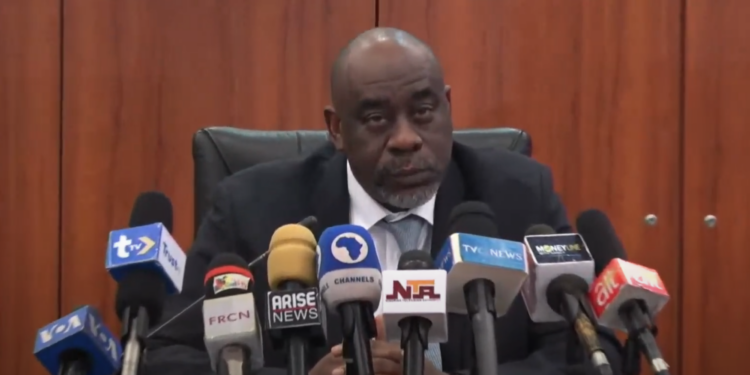The Central Bank has said that it is working with the commercial banks to clear the $10 billion foreign exchange backlog within the next 2 weeks.
According to reports, this was made known by the acting Governor of the CBN, Folashodun Shonubi, who broke the news at a forum on Tuesday in Lagos, when he was confronted with questions on the lingering challenges in the foreign exchange market.
Shonubi said the backlogs would be cleared through different structures within the forex market, adding that banks, which control 75% of the forex transactions, will play a significant role in seeing that the backlog is cleared.
$10 billion unmet FX demand
The FX backlogs, which is the unmet demand for forex by investors and exporters, are estimated at $10 billion and have resulted in heavy losses to many firms.
These forex backlogs include dollar requests from manufacturers and importers purchasing raw material inputs from abroad, parents paying their children’s tuition fees abroad, Nigerians paying medical bills abroad, travellers sourcing Business Travel Allowances (BTAs) and Personal Travel Allowances (PTA), among others.
These requests were stalled for years due to dollar scarcity, a drop in foreign direct investments (FDIs) and foreign portfolio investments (FPIs) inflows, drop in foreign reserves positions amongst other offshore investment opportunities.
What the acting CBN Governor is saying
Shonubi said the local banks have been working with the apex bank on various structures to clear it.
He said,
- “As a matter of fact, there is a large amount of the obligations that the banks in Nigeria have already taken on. So, what happened was that at maturity, they made the foreign exchange available for those who needed to use them like importers and what have you.
- “There are some customers who still have their obligations and part of the restructuring with the banks in Nigeria, is also to clear that backlog. That is something we have been discussing for a while. I expect that we will do that, within the next one or two weeks.
- “What that means, therefore, is that this obligation that people keep on talking about will not be left. Today, we still intervene in the market, so it is not as if it has affected our ability to make monies available to banks in the Investors and Exporters foreign exchange market,”
CBN contributes less than 25% of the FX market
He explained that considering the volume of forex interventions, the role and the depth of the CBN intervention is overemphasized.
Shonubi said,
- “When we look at the volumes, the Central Bank of Nigeria today contributes less than 25% into the forex market. And the aim if you remember about a year and a half ago, was that the Central Bank did not want to be a regular player, but more of intervening to stabilize the rates and that is where we are going.’’
He added that a lot of forex transactions go on through the commercial banks without the CBN’s input.
He said,
- “There is so much more foreign exchange that people don’t talk about, that is being made available through the banking system and banks are selling to their customers. It doesn’t come to the Central Bank, it doesn’t appear as part of the demand that comes to us. And it is significant. It is almost three times what we as a Central Bank make available.’’
Accuses BDCs of round-tripping.
Shonubi also spoke on the need to modernize Bureau de Change (BDC) operations, challenging operators to be technology-compliant or lose their licenses.
The CBN boss stated that plans are on to close down Bureau De Change, BDC which does not operate electronically.
He said the current BDC market is largely cash-driven, and the apex bank plans to modernize its operations to reduce cash interactions.
Accusing BDCs of round-tripping, Shonubi said the BDCs were created to sell small-value forex transactions, but the operators abandoned that role.
He said,
- “The BDC instead of playing its primary role; the foreign currency they get they take them to the black market. We would soon close down any BDC that does not operate electronically. Forex market is supposed to be seamless and transparently carried out.
- “Even when they get the dollars that are available, they would rather keep it and sell in the black market.’’




